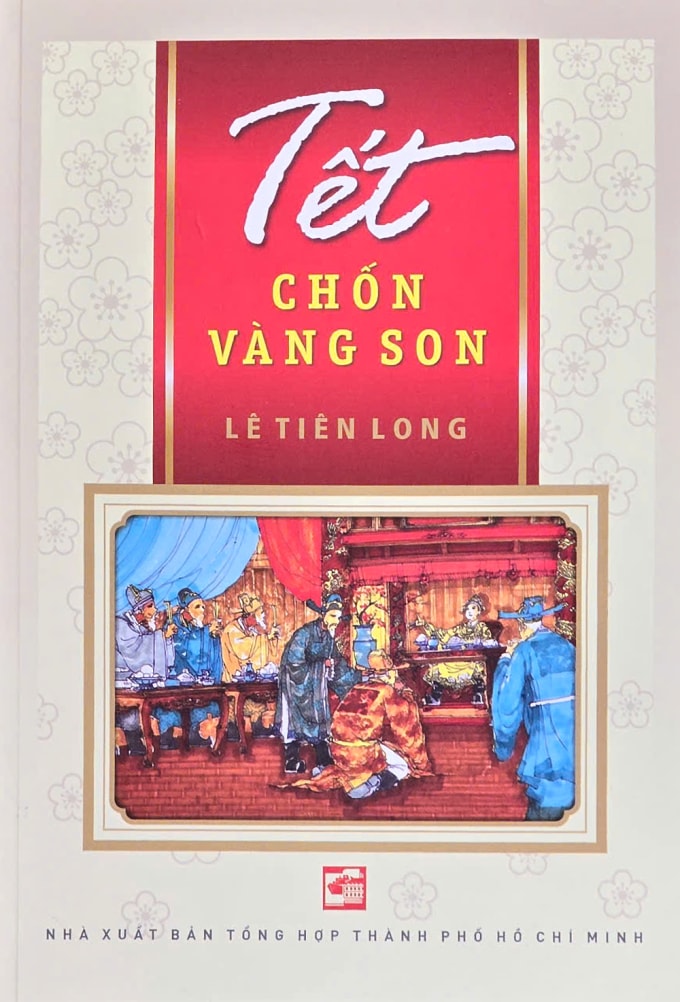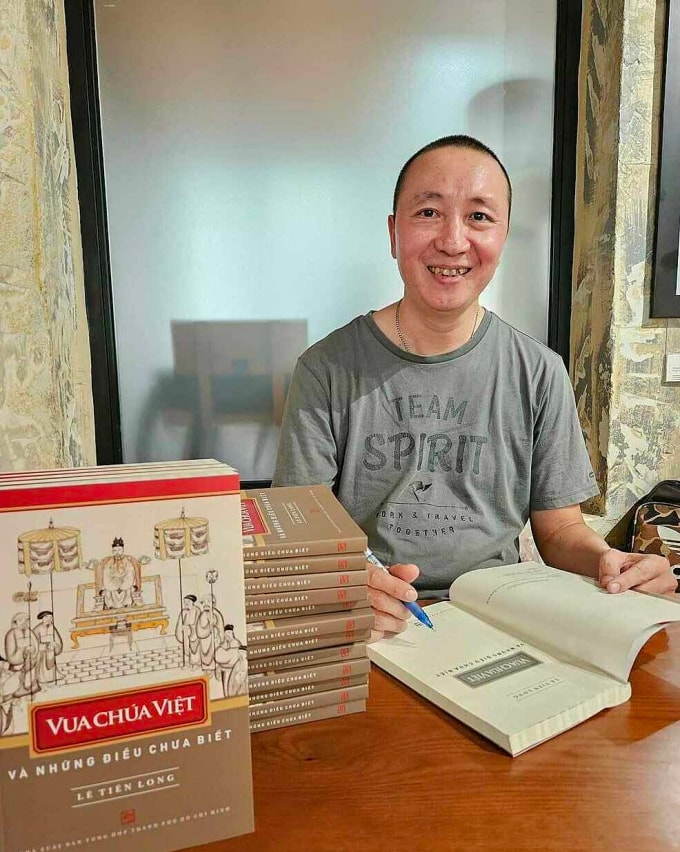In the book 'Tet in the Golden Palace', author Le Tien Long mentioned the story of Vietnamese kings giving 'spring bonuses' and salaries to their mandarins.

Lunar New Year is an important holiday in East Asian countries from ancient times to the present. Tet is a time to rest, a time for people to gather with their families and pay respect to their ancestors.
The same was true in the royal court. The Vietnamese feudal court had Tet holidays quite early and returned to work late, with many complicated rituals. The kings focused on taking care of the material and spiritual lives of the mandarins and the people. Thanks to the long break, the mandarins and the king's servants could take care of their families' Tet.
From the idea that many readers today may want to know more about customs and practices: How did the Vietnamese King celebrate Tet? What rituals did the royal court have and how was it organized?, journalist Le Tien Long - a person passionate about learning about history - devoted his efforts to researching stories. The author read many official histories as well as text sources, documents, researched through experts, and from there compiled the stories.
The book consists of 35 stories with two main parts: Part one is "The Royal Court Prepares for Tet" and Part two is "The King and His Mandarins Celebrate Tet". Right from the first pages, readers can feel the atmosphere of the past, the excitement and bustle of spring and the sacredness and solemnity of royal order. The kings - who are known as "sons of heaven" - will represent their subjects to worship heaven and earth, praying for a prosperous and peaceful year.
The way the royal court "administers" its apparatus suggests many stories about the lifestyle of our ancestors. For example, the Nguyen Dynasty's Tet holiday is from December 25 to January 7.
During Tet holidays, the Nguyen Dynasty kings usually only held ceremonial activities within the forbidden city, with a congratulatory ceremony for mandarins and royal family members on the morning of the first day.
On the third day of Tet, some kings visited their teachers, in accordance with the folk saying "the first day of Tet is for the father, the second day is for the mother, the third day is for the teacher". On the fifth day, the king went on a spring outing, visiting mausoleums, temples and pagodas outside the capital.
Rewarding "human resources" during the Tet holiday is also something that many kings and lords pay close attention to. For example, during the reign of King Ly Thanh Tong, the granting of salaries was considered to "nurture the integrity" of his mandarins.
The money given to mandarins by the king on Tet in the Le Dynasty was a New Year's gift. The practice of giving Tet money to mandarins in the early Le Dynasty was maintained and included in the system during the later Le Dynasty, called "spring bonus money" according to rank.
During the Le Trung Hung period, the book "Le Dynasty Code" It is said that on the first day of Tet, the king gave bonuses and organized a banquet to entertain his mandarins. The spring bonuses given by Lord Trinh to the mandarins were "plentiful", because the Lord was the one who managed the "purse" of the whole country. Therefore, on Tet, after the mandarins wished the king a long life, they went to the lord's palace to perform a ceremony, attend a banquet and receive their rewards.
The kings not only gave Tet rewards to mandarins but also paid attention to treating talented people, soldiers, and workers stationed at forts. In addition, a beautiful custom of the ancient Vietnamese was to give Tet rewards to the elderly. The first king of the Ly dynasty, Ly Thai To, after ascending the throne in 1010, in February, he returned to his hometown in Co Phap district (Tu Son city, Bac Ninh province today) to give money and silk to many elders, according to "Complete Annals of Dai Viet".
Author Le Tien Long said he hopes that through the small book, readers, especially young people, will learn more interesting things, understand more about each dynasty as well as understand history. "From there, they will love more the culture of the country that our ancestors have built and preserved for thousands of years," said Le Tien Long.

According to journalist Yen Ba,The author meticulously relied on many official historical works, then did the work of selecting, editing, and connecting facts, characters, and stories. There are historical books that are thousands of pages thick, recording battles, feats, or famous characters, but there are also small historical books that record life stories, people, territories, geography, famous landscapes, mountains, rivers, lakes, titles, salaries, official systems, ceremonies, music, temples.
"'Tet in the Golden Place' "'Tet in the Golden Palace' by author Le Tien Long is a small 'history' book like that. There is a bit of regret, if only the author had polished the words a little more, selected them a little more carefully, then 'Tet in the Golden Palace' would have been a worthy historical book imbued with literary spirit, helping readers enjoy the luxurious atmosphere of the royal court when Tet comes and spring returns," said Mr. Yen Ba.
TB (according to VnExpress)